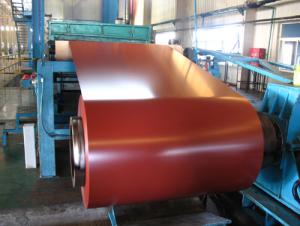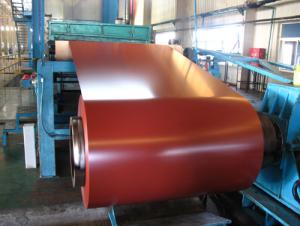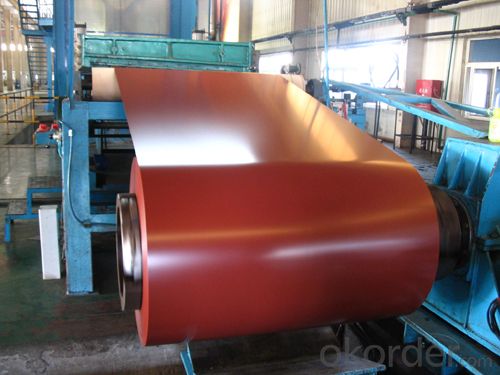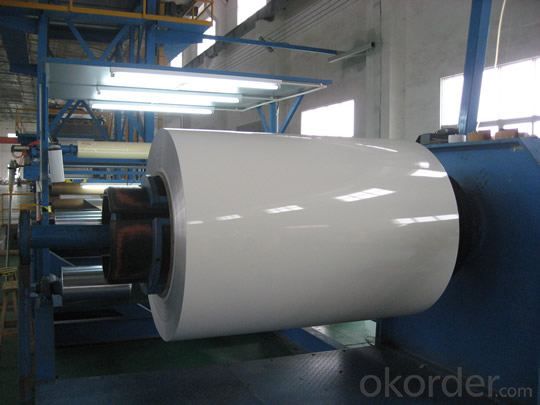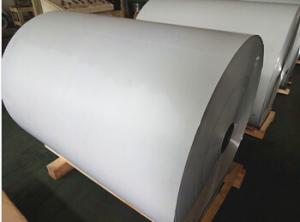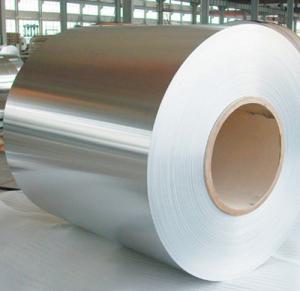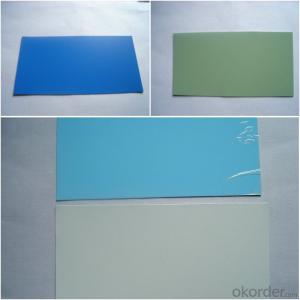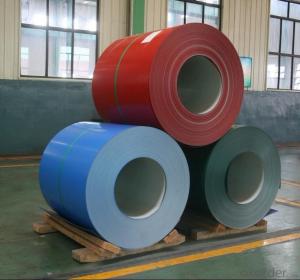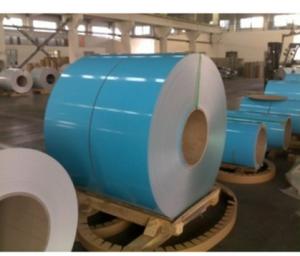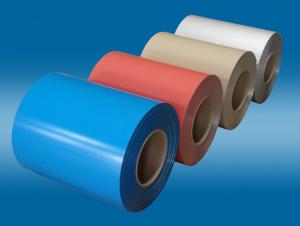Reflective Aluminum Coil - Color Coated Aluminium Coil with Pearl Aluminum Color
- Loading Port:
- China Main Port
- Payment Terms:
- TT or LC
- Min Order Qty:
- -
- Supply Capability:
- -
OKorder Service Pledge
OKorder Financial Service
You Might Also Like
1.Structure of Product Description
Color Coated Aluminium Coil is widly used in roofing, wall and decoration. There are two kinds of painting. One is PE coated and the other is PVDF coated. Usually in the open air, we recommend PVDF Coated. It can last 15-20 years. Now painting brand can be China domestic brand, PPGI and Becker. The price is different. It depends the final customers requirement and usage environment.
2. Main features of the product
a.Good quality --Our color coated aluminium coils are exported to Europe. We have passed European SGS inspection.
b.Professional after-sale service--CNBM have rich experience in export process.
c.Fast delivery time--Usually our delivery time can be controlled within 30 days.
3.Image:
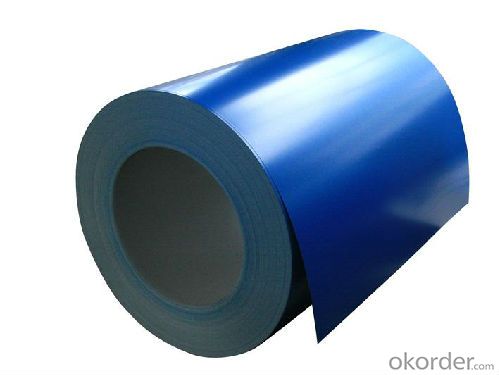
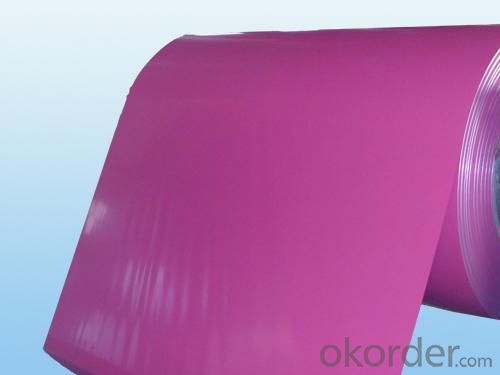
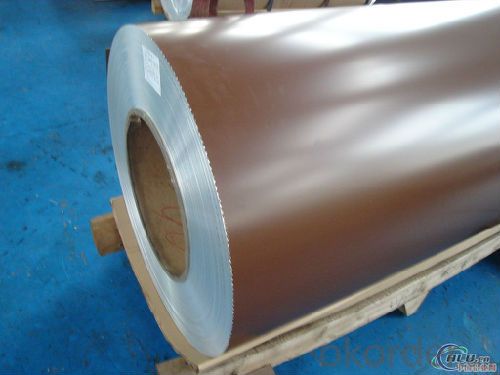
4. Product Specification:
| Alloy | Painting | Coating Thickness | Color | Width | Coil ID | Coil Weight |
| AA3003 | PE,PVDF | 22-25MICRON | RAL | Above 1000MM | 505mm | 2 tons |
5.FAQ:
What is the quality standard?
---Usually our standard is GB3880-2006
What is the largest width?
---It is 2300mm
What is the MOQ?
---Usually we can accept 5 tons.
- Q: my text says aluminium does not corrode much as a passive aluminium oxide layer is formed on it.Well other metals such as sodium adn potassium also form oxides. Why dont their oxides prevent further oxidation ?
- Not sure. Maybe because Na K are more active than Aluminum.
- Q: which metal is very common today and which one will be most common in future. steel or aluminum
- aluminum costs more to produce, but has some very good proprieties, you will likely see steel and aluminum way into the future in about the same ratios as today
- Q: What is the role of aluminum coils in the automotive industry?
- Aluminum coils play a crucial role in the automotive industry as they are used in the manufacturing of various vehicle components. These coils are primarily utilized in the production of heat exchangers, such as radiators and condensers, which are responsible for regulating engine temperature and air conditioning systems. Aluminum coils offer excellent heat transfer properties, lightweight construction, and corrosion resistance, making them ideal for enhancing vehicle performance and fuel efficiency. Additionally, they are also utilized in the fabrication of body panels, frames, and suspension components, contributing to the overall weight reduction of automobiles.
- Q: What are the different alloys used for aluminum coils?
- Aluminum coils utilize several different alloys, each possessing unique properties and applications. Some commonly employed alloys encompass: 1. 1100 Alloy: A pure aluminum alloy that boasts exceptional corrosion resistance and high thermal conductivity. It finds frequent usage in scenarios necessitating elevated thermal or electrical conductivity, such as heat exchangers or electrical conductors. 2. 3003 Alloy: A versatile aluminum alloy offering commendable resistance against atmospheric corrosion and moderate strength. It is commonly employed in situations requiring moderate strength and formability, like packaging, roofing, or vehicle parts. 3. 5052 Alloy: Among the strongest non-heat-treatable aluminum alloys, this alloy exhibits top-notch corrosion resistance and favorable formability. It frequently finds application in marine environments, automotive components, and household appliances. 4. 6061 Alloy: A heat-treatable aluminum alloy renowned for its exceptional strength and corrosion resistance. It is often utilized in structural capacities, such as aircraft components, marine hardware, or bicycle frames. 5. 7075 Alloy: A high-strength aluminum alloy recognized for its outstanding fatigue strength. It is commonly employed in aerospace and military scenarios, as well as in high-stress structural elements. These examples represent merely a fraction of the diverse array of alloys employed for aluminum coils. The selection of a specific alloy depends on the desired properties and intended application of the coil.
- Q: What are the common fabrication techniques for aluminum coils?
- Aluminum coils can be fabricated using several common techniques, including rolling, annealing, slitting, and coating. The primary fabrication technique for aluminum coils is rolling. This involves passing a continuous strip of aluminum through a series of rollers to gradually reduce its thickness and increase its length. The process can be done hot or cold, depending on the desired properties of the coil. To improve the mechanical properties of aluminum coils, annealing is often used. This heat treatment process involves heating the coil to a specific temperature and then cooling it slowly to relieve internal stresses and increase its ductility. This makes the coil easier to work with during subsequent fabrication processes. For cutting wide aluminum coils into narrower strips, the technique of slitting is employed. This involves passing the coil through sharp rotating knives that make precise cuts along the length of the coil. Slitting allows for customization and the production of coils in different widths, which can be used for various applications. Coating is another commonly used fabrication technique for aluminum coils. It involves applying a protective or decorative coating onto the surface of the coil to enhance its appearance and improve its performance. Various types of coatings, such as paint, anodizing, and powder coating, provide corrosion resistance, durability, and aesthetic appeal. In summary, these fabrication techniques are essential in transforming aluminum into coils that meet specific requirements for industries like construction, automotive, and aerospace.
- Q: Can aluminum coils be used for outdoor applications?
- Yes, aluminum coils can be used for outdoor applications. Aluminum is highly resistant to corrosion and weathering, making it a suitable choice for outdoor use. Additionally, aluminum coils are lightweight, durable, and have excellent thermal conductivity, making them ideal for various outdoor applications such as roofing, gutters, and HVAC systems.
- Q: hello, i'm doing a school project on aluminium and i'm a little stumped. what elements bond well with aluminium and why? thanks alot!
- Fluorine can bond with aluminum. Aluminum has three extra electrons and will easily let the Fluorine atoms use them. Because Aluminum has three, that means three Fluorines can bond. The result is AlF?, also known as Aluminum trifluoride.
- Q: What is the impact resistance of aluminum coils?
- The specific impact resistance of aluminum coils may vary depending on the alloy and temper of the aluminum. In general, aluminum is renowned for its excellent impact resistance due to its inherent strength and ductility. Aluminum coils find extensive use in industries like automotive, construction, and packaging, where they are likely to encounter impact or mechanical stress. Manufacturers frequently employ aluminum alloys like 3003, 5052, or 6061 for coil production. These alloys are recognized for their high tensile strength, which contributes to their impact resistance. Furthermore, aluminum possesses the capability to absorb and distribute energy upon impact, thereby reducing the likelihood of damage or deformation. It is important to note, however, that various other factors can influence the impact resistance of aluminum coils. These factors include coil thickness, surface finish, and the presence of additional protective coatings or treatments. Generally, thicker coils offer greater impact resistance, while coatings or treatments can enhance durability and resistance to impact. In conclusion, the impact resistance of aluminum coils can generally be considered satisfactory. However, it is advisable to consult with a manufacturer or supplier to ascertain the specific impact resistance properties of the chosen aluminum alloy and coil.
- Q: This question asks for a comparison of the benefits and drawbacks of utilizing aluminum coils in food storage.
- <p>Advantages of using aluminum coils for storing food include their excellent heat conductivity, which allows for even heating and cooling, making them ideal for temperature-sensitive food items. They are also lightweight, durable, and resistant to corrosion, which enhances their longevity. Additionally, aluminum coils are recyclable, contributing to environmental sustainability. Disadvantages include potential health concerns due to the leaching of aluminum into food, especially in acidic environments. There's also the risk of denting or scratching the surface, which can compromise the integrity of the coil and lead to contamination. Moreover, aluminum coils may not be suitable for all types of food storage, particularly those requiring airtight or vacuum sealing.</p>
- Q: How do aluminum coils perform in high-pressure applications?
- Aluminum coils generally perform well in high-pressure applications due to their inherent strength and durability. The high-pressure environment requires materials that can withstand the force and maintain their structural integrity without deformation or failure. Aluminum coils are known for their excellent tensile strength, which allows them to handle high-pressure conditions without buckling or collapsing. Furthermore, aluminum is highly resistant to corrosion, making it ideal for applications where exposure to moisture or harsh chemicals is a concern. This corrosion resistance ensures that the coils will not deteriorate or weaken over time, even under high-pressure conditions. In addition to their mechanical properties, aluminum coils also possess excellent thermal conductivity. This property allows them to efficiently transfer heat away from the high-pressure environment, thereby preventing overheating and maintaining stable operating conditions. The thermal conductivity of aluminum also aids in rapid heat dissipation, enhancing the overall performance of the coils in high-pressure applications. Moreover, aluminum coils are lightweight compared to other metals, making them easier to handle and install in high-pressure systems. Their lightweight nature also reduces the overall weight of the system, which can have advantages in terms of energy consumption and transportation costs. However, it is important to note that the specific performance of aluminum coils in high-pressure applications may vary depending on the grade and thickness of the aluminum used. It is crucial to select the appropriate aluminum alloy and gauge based on the specific requirements of the application to ensure optimal performance and longevity.
Send your message to us
Reflective Aluminum Coil - Color Coated Aluminium Coil with Pearl Aluminum Color
- Loading Port:
- China Main Port
- Payment Terms:
- TT or LC
- Min Order Qty:
- -
- Supply Capability:
- -
OKorder Service Pledge
OKorder Financial Service
Similar products
Hot products
Hot Searches
Related keywords
